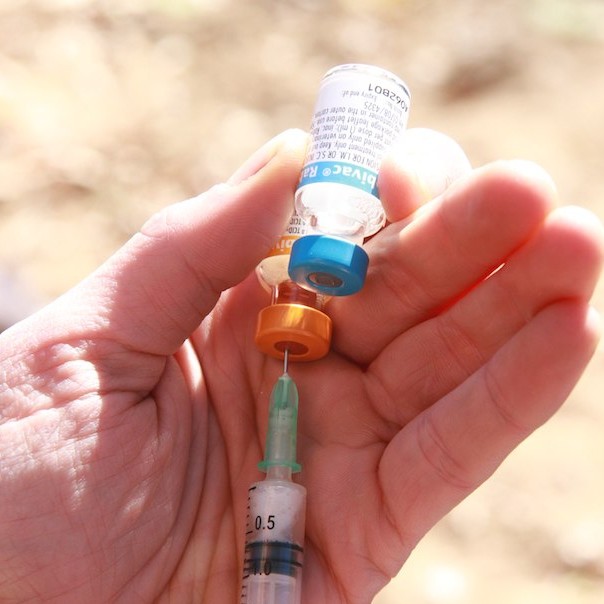Community run veterinary clinics in Pakistan
23/08/2013
The programme has the support of the community which they will serve, who have given the programme a building, gas and electricity to work out of. PACLA are in need of equipment and a few funds to start up.

Parveen Animal Care & Life Association (PACLA) aim to set up a small community run veterinary centre in Khushpure, district Faisalabad, Punjab, Pakistan. The aim is to increase the welfare of domestic and rescued animals through vaccination and a minor injuries clinic. Dogs will be vaccinated against a number of diseases including rabies, which is a problem in the human population. By vaccinating the dogs against rabies, it will instantly reduce the probability of someone getting bitten by a rabid dog and contracting rabies themselves. Part of the programme is to organise seminars in more rural areas to inform people about the risk to their dogs and themselves from these canine diseases and tell them how they can protect the dogs (and themselves) from these diseases. The programme has the support of the community which they will serve, who have given the programme a building, gas and electricity to work out of. PACLA are in need of equipment and a few funds to start up. WVI is unable to help this worthy project as it does not fall within our charitable aims and we are struggling to raise the funds to support projects we are already committed to. The Director, Umair Ashraf, has already contacted a number of organisations (e.g. WVS, WSAVA, Dogs Trust, Mission Rabies, Animal Aid etc) but none are in a position to help at the moment – I think we are all in the same financial position. WVI in Zimbabwe
WVI works with Painted Dog Conservation and the Zimbabwean Veterinary Department to hold community vaccination and minor injuries clinics in the villages surrounding Hwange National Park, Zimbabwe.
WVI's aim is to reduce the threat to Endangered African painted dogs from diseases passed on from domestic dogs such as Canine Distemper Virus and Rabies. The vaccination clinics occur every two years and not only improve the health of the domestic dogs but also create a disease barrier between infected domestic dogs and the rare painted dogs.
Subsequent benefits are to reduce the level of rabies in the area (though not a particular problem here) and provide a service to the local people in the name of the painted dog. Together with the other services PDC provides, the perseption of the painted dog increases, reducing their persecution.
.png)
.png)

.png)
.png)







.png)






.png)
.png)




.png)


